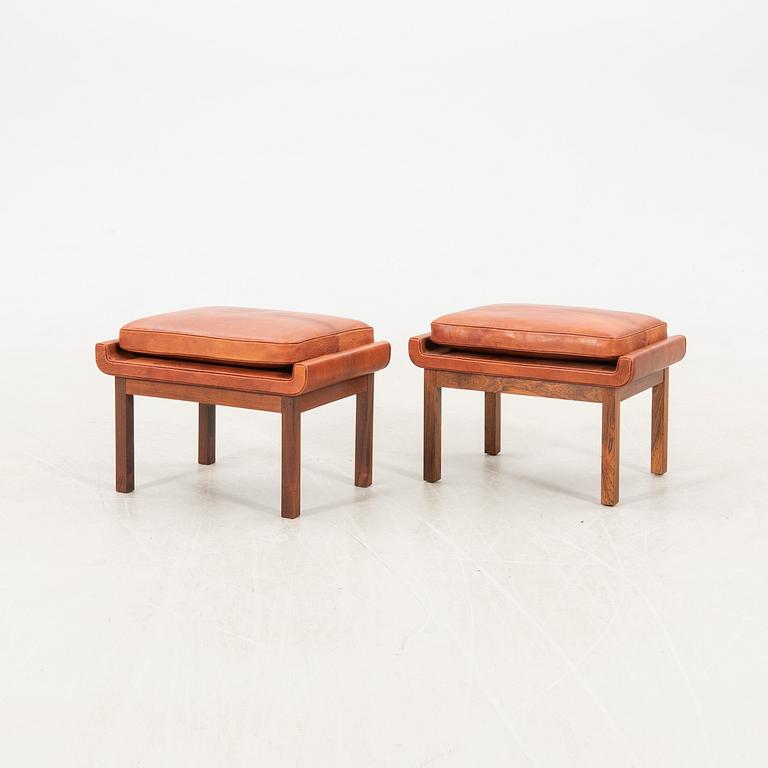Finn Juhl
Finn Juhl, a pair of stools for France & Daverkosen, Denmark, second half of the 20th century.
Jacaranda upholstered in leather, loose cushion, approx. 61x41x38 cm
Wear commensurate with age and use.
Designer
The Danish architect and designer Finn Juhl is considered one of Scandinavia's most influential persons in modern furniture design. Juhl studied from 1930 to 1934 at the Royal Danish Academy of Fine Arts School of Architecture and, while still a student, secured work with the Danish architect Vilhelm Lauritzen. This was followed by a series of prestigious assignments as a furniture designer both in Denmark and internationally, including work at the UN Headquarters in New York and the Danish embassy in Washington.
Instead of viewing furniture solely as practical constructions, Finn Juhl drew inspiration from an organic design language, where materials and form interacted in symbiosis. Like a sculptor, Juhl often drew inspiration from the shapes of the human body and nature's own constructions, fully leveraging the strength of materials. Juhl's ideas resulted in daring, supple joinery where each element elegantly merged into a balanced whole.
Finn Juhl's furniture, created in collaboration with master cabinetmaker Niels Vodder, introduced a new language to the world of furniture and made a significant impact with its advanced models, such as "The Chieftain chair" and "Grasshopper."

































